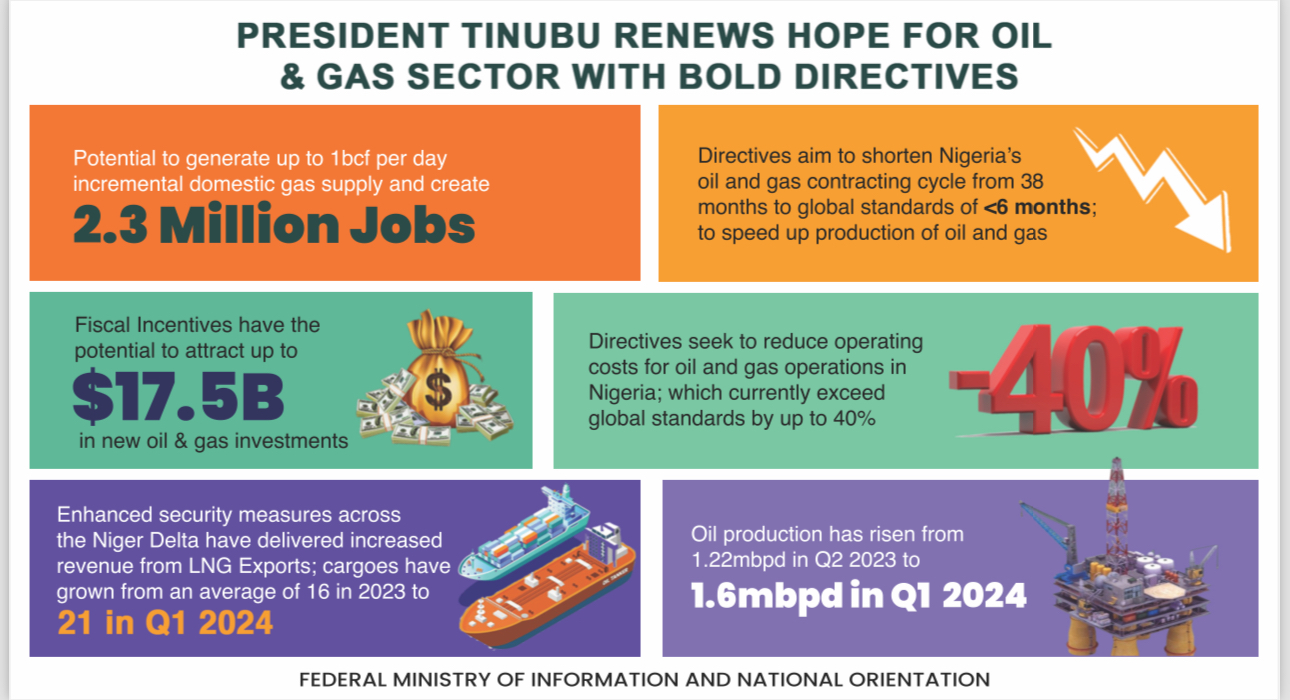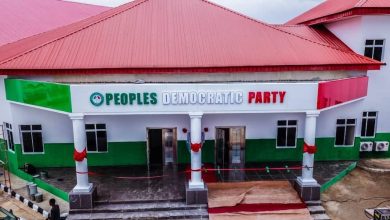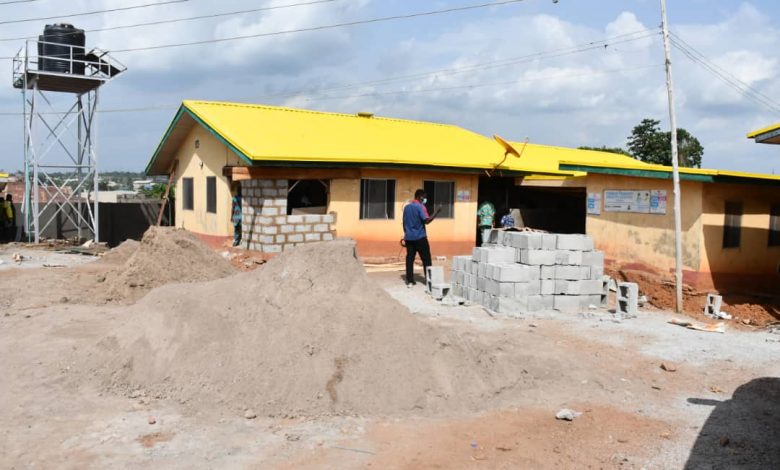
Ogun: Towards resuscitating the primary health care delivery system
By Yemisi Fashola
Historically, there were three major attempts at evolving and sustaining a community and people -oriented health system in Nigeria. The first attempt occurred between 1975 and 1980.
The fulcrum of this period was the introduction of Basic Health Service Scheme which began as an integral part of Nigeria’s third national development plan and was structured along basic health units which consisted of 20 health clinics spread across each LGA, which were backed up by four Primary Healthcare Centres (PHCs) and supported by mobile clinics serving an approximate population of 150,000 each.
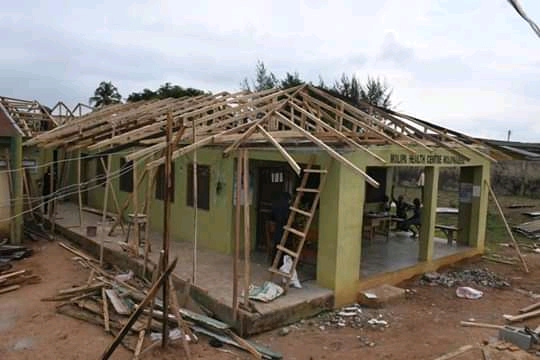
The second attempt was led by late Professor Olikoye Ransome –Kuti, which occurred between 1986 and1992. This period was characterised by the development of model PHCs in 52 pilot Local Government Areas, all of which were implementing in all eight component of PHCs. The third and last attempt was the establishment of National Primary Health Care Development Agency to make basic healthcare available to all.
During this period which spanned between 1992 -2001, the ward health system which utilises the electoral wards as the basic operational unit for PHCs. This was in response to devolution of PHCs to local government by the then military government.
The ward minimum health care package which outlines a set of cost -effective health interventions with significant impact on mortality and morbidity ratio was also developed. These packages took into cognizance the nations burden of disease, current trends in disease prevalence and priority diseases of national importance.
In Ogun , the Primary Health Care Development Board was founded in 2009 with the aim to developing a sustainable P HC system which is equitable, affordable and qualitative through the participation of Ogun State people in partnership with all levels of Government and Non-governmental Organisations.
The Board Coordinates the planning, budgetary provision and monitoring of all primary health care services as well as domesticates and disseminates policies, guidelines and standard operating procedures which was developed and produced by National Primary Health Care Development Agency and Federal Ministry of Health on Primary Health Care service delivery in the State.
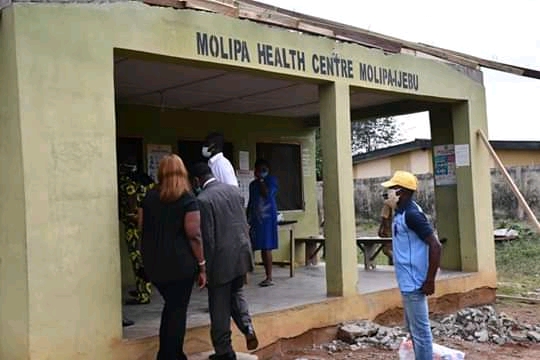
This it had done in the following areas such as Polio Eradication, Integrated Management of Childhood Illnesses, Maternal and Child Health, Reproductive Health and other Health Education promotion.
It is an established fact that there is no future without a sound health and with this in mind, Governor Dapo Abiodun made a promise on May 29, 2019 to make topmost of his administration’s agenda, the health welfare initiatives for residents by facilitating easy access to qualitative and affordable healthcare services, which he said was a major component of the “Building Our Future Together Agenda of his administration”.
While it was obvious that a lot of PHCs inherited from the past administration were on the verge of collapse and extinction, and with a focus to make primary healthcare centres a nucleus of the health care delivery system to bring services close to the grassroots, and ensure that most of the day-to-day health challenges of the people are treated locally, freeing the secondary and tertiary health institutions to concentrate only on those ailments requiring specialist attention, as well as teaching and research.
The governor carried out a facility visit and assessment of PHCs across the three senatorial districts of the State with a view to carrying out renovation and upgrade to drive home his promise of one flagship center in each Local Government and gradually connecting to the broadband internet to leverage on technology for a centralised health record management system.
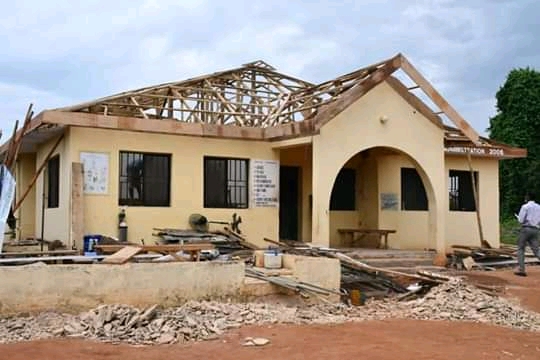
Consequently, 20 Primary Health Centres that are currently undergoing renovation are located in Adeun (Abeokuta North LGA), Erunbe (Abeokuta South), Sango (Ado-Odo/Ota), Obada (Ewekoro), Oyero (Ifo), Ogbere (Ijebu East), Ilaporu (Ijebu North), Ijari (Ijebu Northeast), Isoku (Ijebu Ode), Iperu (Ikenne), Owode HC (Imeko Afon), Idiroko (Ipokia), Owode (Obafemi Owode), Osiele H(Odeda), Mobalufon (Odogbolu), Comprehensive Health Center, Iwopin (Ogun Waterside), Ode (Remo North), Magun (Sagamu), Igbogila (Yewa North), and Ajilete (Yewa South).
This is the first phase in the series of renovations to be carried out by the present administration, which according to the Commissioner for Health, Dr. Tomi Coker, would be adequately staffed and equipped to ensure that people, especially, at the grassroots have access to quality healthcare delivery. This no doubt is a move that would further strengthen the primary health system accordingly.
According to the Commissioner, ‘’the target is that, 236 primary health centres would have been renovated and adequately equipped by the end of this tenure. The plan is to have 10 Primary Health Centers around each of our General Hospitals. We believe that if PHC is attractive and well equipped, the rural dwellers will prefer orthodox medicine”, she said.
In a bid to ensure that potent and effective vaccines are available for children in the State, free vaccines and devices were given to the 20 LGAs to improve on the Routine Immunisation (RI) coverage. Also, the Central Cold Chain Store where vaccines in the State are kept before distribution to PHCs enjoyed a boost when it took delivery of 100 special solar powered freezers.
This move would help ensure that the issue of power outages was taken care of, and vaccines are kept at a constant temperature to ensure its potency.
The present administration took it upon itself to continue to ensure the wellbeing of children in the State, through the National and State Immunisation Plus Days as well as the Maternal, Newborn and Child Health Week (MNCHW) where not less than 1,224,671 children were vaccinated in 17 LGAs with 93 percent of children 6-59 months supplemented with Vitamin A, 113, 389(bivalent OPV) and 131,941(Inactivated Polio Vaccine) children were vaccinated, 87 percent of children 12-59 months de-wormed, 3,698 children were immunised in hard- to- reach communities with 598 children vaccinated in riverine area and 1,357,961 children reached during the Polio Outbreak Response2 (OBR2) .
Men-A vaccine was also introduced in August, 2019 into the state RI schedule as well as the second dose of measles vaccine for children at 15 months to ensure that no child comes down with meningitis and the measles virus disease. Hence, the State had been able to maintain a wild Polio-free status through intense continuous surveillance and vaccination of children.
To this end, the State has recorded 91percent overall performance during Mock Peer Review documentation certification, consequently leading to a significant improvement in child mortality
As part of efforts to intensify, sustain and encourage mothers and caregivers to embrace Routine Immunisation (RI), as an assured means of eradicating preventable childhood diseases, the wife of the State Governor, Mrs. Bamidele Abiodun in collaboration with Procter and Gamble flagged -off the Routine Immunisation Intensification Project (RIIP), with distribution of Diapers to children in all Primary Health facilities across the State in a ceremony held at Primary Health Centre, Igbogila, Yewa North Local Government.
The First lady identified lack of incentives, poor access to facilities and poverty as some of the reasons for the low uptake of RI services. She also made it known that the present administration had provided the diapers to sustain the progress made so far in the eradication of polio and other vaccine preventable diseases amongst children.
This has also recorded great improvement in the uptake of RI amongst children in the State. With a strong determination that women should not die in the process of giving birth nor should children die in the process of coming to life, therefore the need to strengthen the health system to reduce maternal mortality.
The Prince Dapo Abiodun led administration made a commitment to improving maternal health. As a strategy, the Maternal, Newborn and Child Health Week (MNCHW) regular campaigns have been critical to ensure progress in the realisation of the Ogun State women’s right to good health care.
It also aimed to improve the healthcare seeking behavior of the whole family, especially pregnant women. During the week women of child bearing age were counseled and screened for HIV/AIDS, distribution of Long Lasting Insecticidal Treated Nets to all under- five children and pregnant women who register during the week as well as other interventions which included Antenatal care registration (including immunisation and IPT administration for pregnant women), Promotion of key household practices such as hand washing and basic hygiene and Provision of family planning services.
To encourage and promote family and also reduce the rate of unintended pregnancies, Improve maternal health and child survival as well as prevent sexually- transmitted infections, empowering women, protecting the environment (over population of the earth) and promoting post abortion care, reproductive health enjoyed a major boost in the first 365 days of Governor Abiodun’s administration.
This move ensured the steady increase of the contraceptive prevalence rate from 26 to 32.1percent thereby allowing people to attain their desired number of children, determine the spacing of pregnancies and improve the economic and personal development of women in the State.
To sustain these improvements, the State continued to collaborate with development partners at ensuring increased uptake of modern contraceptives. Stakeholders to the success of reproductive health issues were identified and adequately trained in the area of social mobilisation and Behavioral Communication Change(BCC). All these were geared towards creating awareness and encouraging the health seeking behavior of residents.
In order to deliver quality and efficient services, selected health workers were trained on Basic Health Care Provision Fund (BHCPF). Also, training and re-training of Nurses and Midwives on how to better deliver key primary health and reproductive services especially in Long Acting Reversible Contraceptives were done in the course of the one year journey so far.
No doubt, This present administration has shown that it is determined to ensuring optimal health care for all citizens of the State with a goal to revitalise the health care service delivery in the State particularly at the Primary Health Care centers, ensure that quality basic health care services are delivered to the majority of Ogun State people irrespective of their locations.
Yemisi Fashola wrote from Abeokuta

